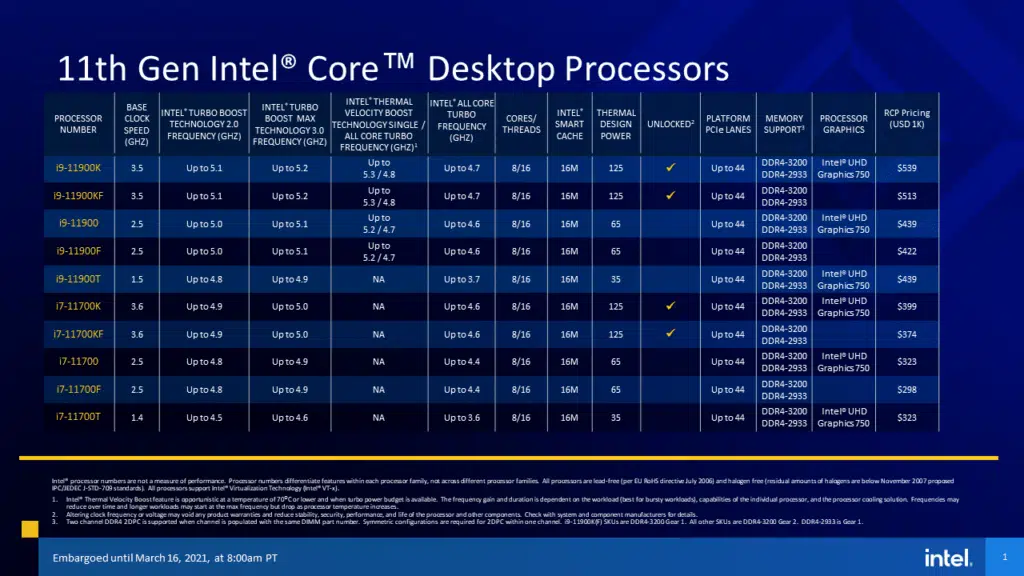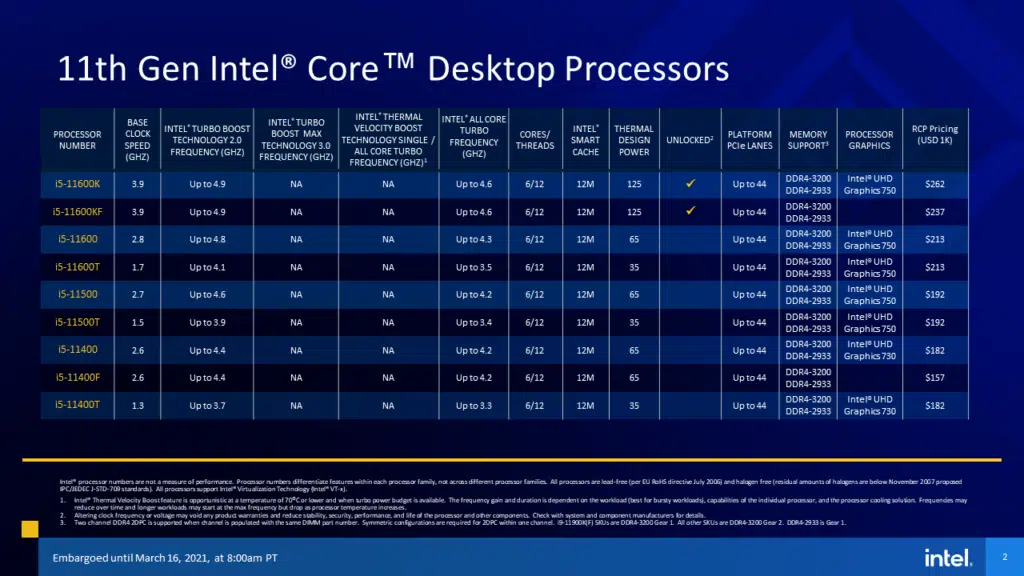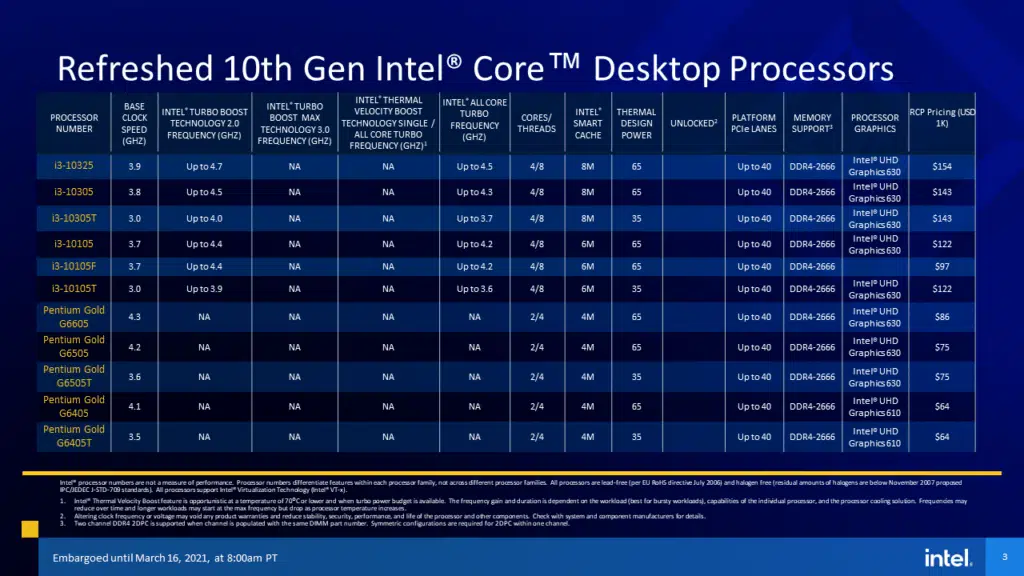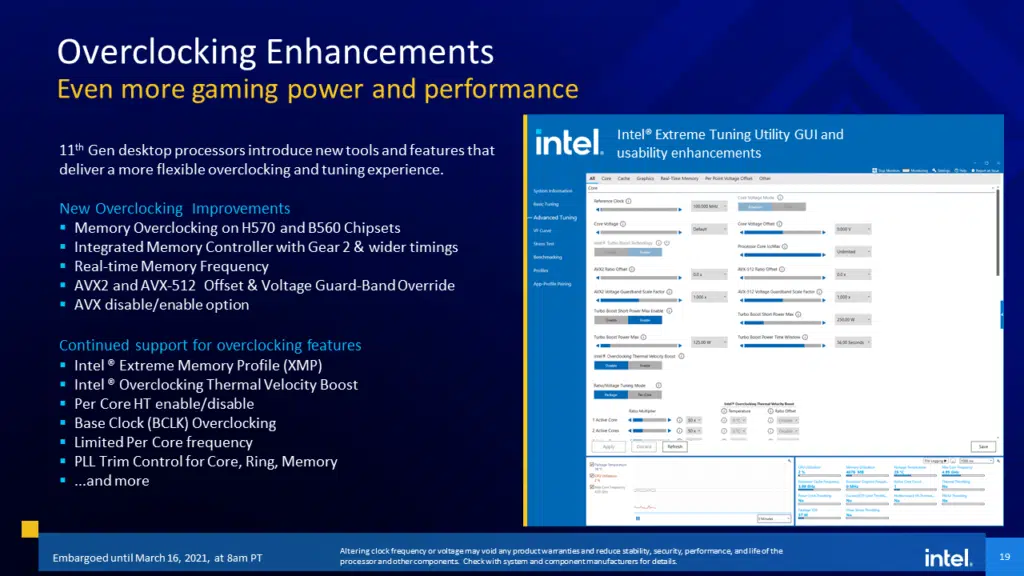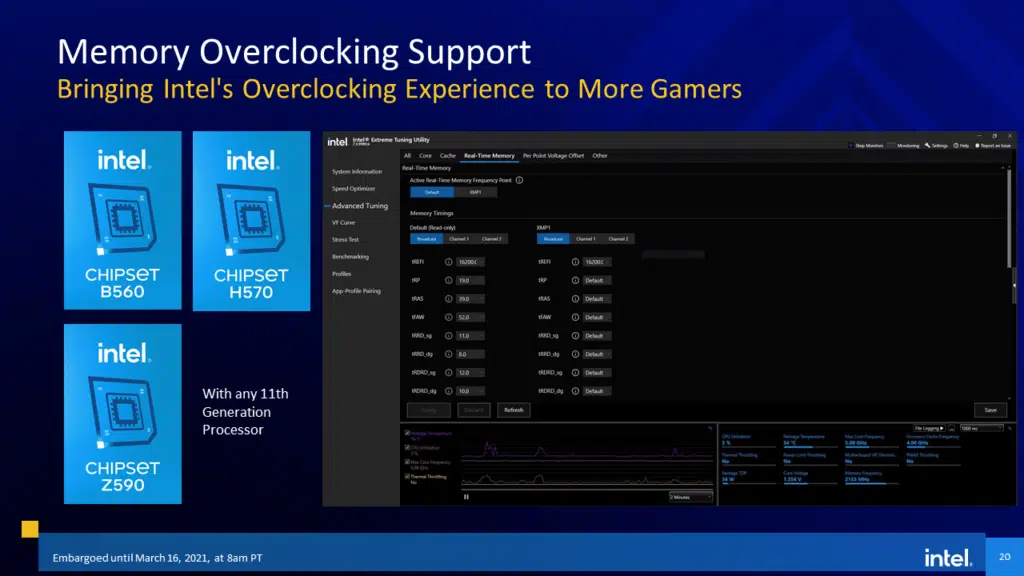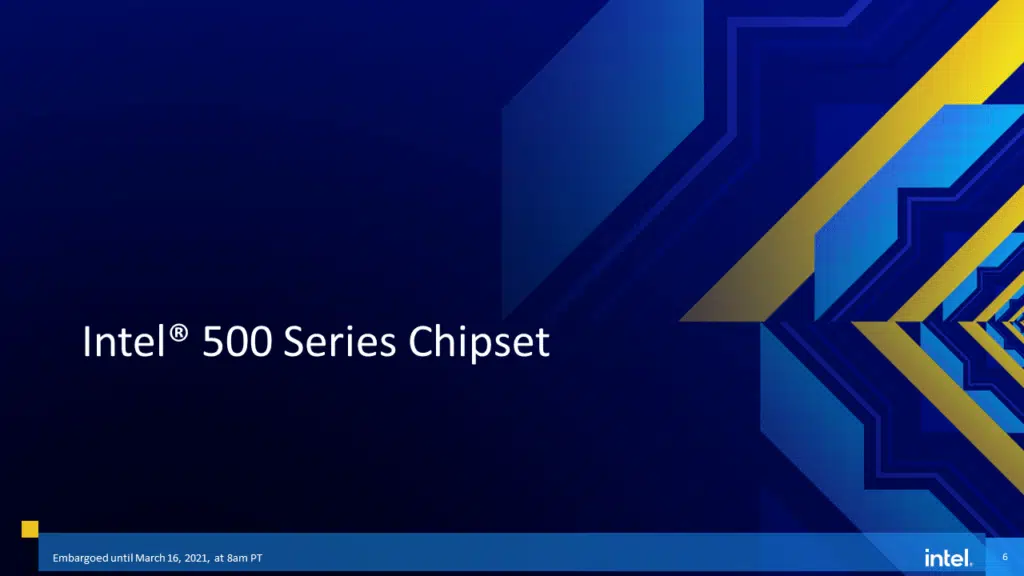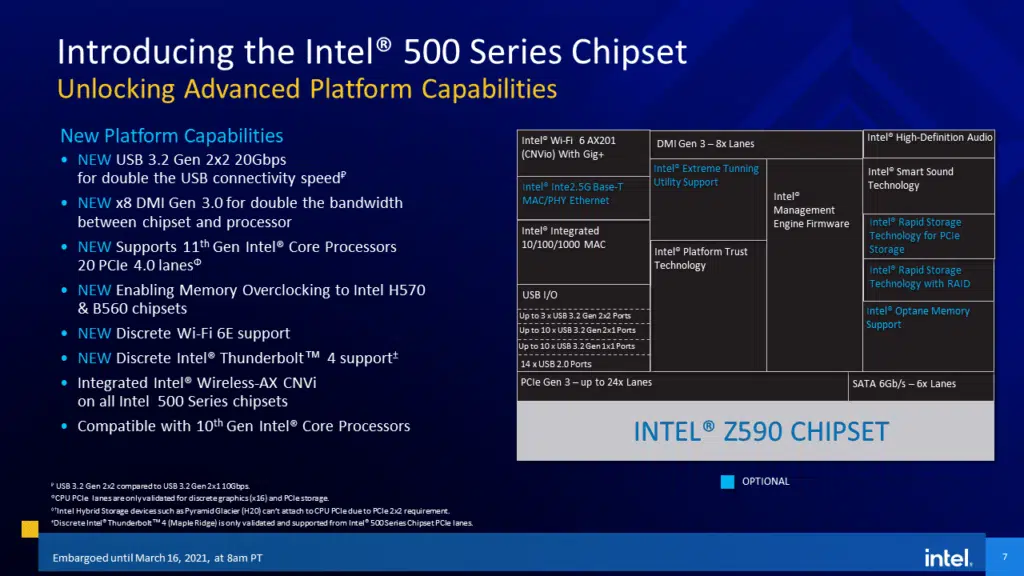Pricing
Here is the official RCP pricing for each CPU. The i9-11900K will be $539, and therefore by price compares to the AMD Ryzen 9 5900X. The i7-11700K will be $399 and therefore by price is actually $50 cheaper than the AMD Ryzen 7 5800X. The i5-11600K will be $262 and therefore by price is also a little less than the AMD Ryzen 5 5600X.
The i5-11600K and i7-11700K match core count and thread count with the AMD competition. However, the i9-11900K at 8c/16t does not match the core and thread count with the Ryzen 9 5900X which is 12c/24t.
Overclocking
Intel made it very clear that Overclocking is on their mind. In fact, there are new features built-in that allow overclockers to have more control than they’ve ever had in tweaking performance. First and foremost, memory overclocking is now supported on B560 and H570 chipsets. You will be able to set the memory frequency in real-time on the new 500 series chipsets. Due to the new memory controller on Rocket Lake, there is Gear 2 support with wider timings.
There is also a new feature to set AVX2 and AVX-512 voltage offsets with guard-band override. This means voltage manipulation for AVX. You will even be able to disable AVX for the most extreme overclockers just wanting the highest frequency period. There will be new options in Intel’s Extreme Tuning Utility GUI overclocking software in Windows for real-time adjustments. Intel was, even so, bold to state in its briefing that we may see overclocks as high as 5.2GHz on all cores, if AVX voltage offsets are used. This should be an achievable goal, and possibly beyond, remember we are talking all-core here.
Chipset Information
Intel is launching a new 500 series of chipsets to go along with Rocket Lake CPUs. The chipsets will be manufactured on a 14nm process. Fear not, the same socket is in play here, LGA 1200 remains the socket that is being used. This means both Comet Lake and Rocket Lake CPUs will work in 500 series chipset motherboards. It also means the reverse is true, Rocket Lake CPUs will work on Z490 motherboards as long as the BIOS is updated.
The new chipsets, starting from the most enthusiast to the least, are the Z590, B560, and H570. Naturally, the one most gamers are going to want to cling to is the Z590, but the B560 is one you might also want to keep an eye on, there is a new functionality that overclockers might like. DDR4-3200 is the new standard speed for Rocket Lake.
One of the big things is that there will now be official PCI-Express 4.0 support. Previously, it was up to motherboard manufacturers to enable PCIe 4.0 specifically on Z490 motherboards, some had it, and others did not. Now, across the board, 500 series chipsets support PCIe 4.0. The Z590 itself will have 20 PCIe 4.0 lanes. PCIe Gen 3 can support up to 24 lanes.
Another big update is that the DMI bus is getting an upgrade. The chipset now supports DMI Gen 3.0 x8 which brings double the bandwidth between the chipset and the processor on Z590. However, B560 will only offer DMI x4 speeds. Rocket Lake CPUs all support DMI x8, the spec relies on the motherboard supporting it.
USB 3.2 Gen 2×2 20Gbps is also now supported for double the USB connectivity speed. There is also now discrete Wi-Fi 6E support, Intel Wi-Fi 6 AX201 (CNVio) with Gig+ on all chipsets. Intel 2.5G Ethernet can also be supported. There is now discrete support for Intel Thunderbolt 4.
Another big update is that Intel is now enabling memory overclocking on B560 and H570 chipsets. No longer is it just on the Z platform, B560 and H570 will allow you to overclock your memory for better performance.
Resizable BAR will also be supported on motherboards. It will be up to the video card manufacturers, like NVIDIA, to enable that support on their cards via drivers.

